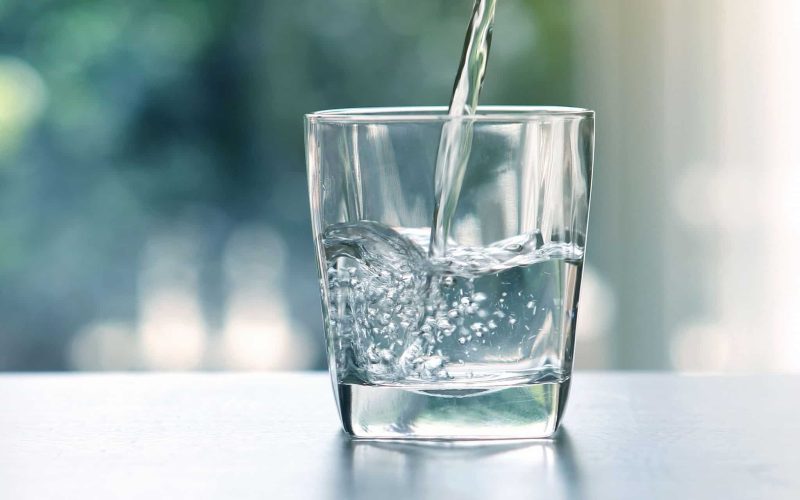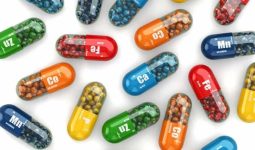Man a watery being is made up of 70% water; the body requires water for many important metabolic functions, water also forms part of important liquids in the body like blood, plasma, hormones, breast milk and other important body fluids.
The level of water needs to be maintained if not it can lead to dehydration; and this is done through regular intake of water.
Many people overlook dehydration but don’t know that it has severe consequences on the body; extreme dehydration can lead to coma and death.
Older people need water regularly because as they age, the brain cannot properly sense the signal of thirst and this is not good for the body.
Younger people can need more than 8 cups of water a day; this will depend on factors like gender and activity level; men need more water than ladies and those who are physically active need more water than those who are not.
What are the benefits of hydration?
It prevents dehydration
Dehydration is behind many uncomfortable signs and symptoms experienced every day by most people; some of them are sleepiness during the day, mental fatigue, tiredness and weaknesses, confusion and memory problems, irritability, constipation and organ failure.
Hydration prevents dehydration and its ugly symptoms from manifesting.
It ensures smooth metabolism
Metabolism is the sum of the whole reactions that takes place in the body; it is also the coordinated sequence of biochemical reactions that takes place in the body.
Proper hydration allows these interactions to flow smoothly and efficiently; a 1% drop in the level of water can affect your metabolism.
It prevents headaches
Dehydration can cause headache, it can even trigger migraine in some people; this is the most common cause of headache but most people don’t know and they end up taking drugs and painkillers for a simple case that can simply be solved by taking lots of water. So rehydrating will relieve the pain.
It boosts healthy functioning of the organs
When the body is well hydrated; all the organs of the body will function optimally, they will be no impaired functions or organ failure which dehydration causes. Important organs that can be affected by dehydration are the brain, liver, kidneys, stomach, bladder and heart.
It speeds up repair and healing of the joints and cartilage
Most of the padding in the cartilage is made up of water; dehydration will make them stiff and this will affect movement and if injuries occur, it will slow the process of healing.
It boosts mood and brain power
The brain requires good amount of water for it to function properly; the brain controls and affects every body movement and behaviour and even down to mood. When the brain is dehydrated it can affect mood and other functions of the brain.
Dehydrated people usually experience confusion, fatigue, bewilderment, sleepiness, inability to concentrate, irritability, problem remembering and depression.
But when the brain is well hydrated; one experiences calmness, positive feeling and emotions, alertness and increased concentration.
It detoxifies the body
Regular intake of clean water daily helps your body to flush out toxins, waste and bacteria from every cell in your body; it also helps in removing the toxic byproducts of prescription and non-prescription drugs.
This in turn will guard the body against infection; it will protect the eliminative organs like the kidneys and bladder by flushing out microbes that try to accumulate in these organs.
It makes the skin healthy
Proper hydration clears toxins from the skin, makes it healthy and gives it a natural glow. It fights skin irritations, infections, inflammation, congestion and other skin problems; it guards against acne, itching, rash, redness, blackheads, eczema and general blotchiness.
It slows the process of aging
Hydration benefits the skin immensely; the cells also will be renewed, the activities of free radicals will reduce and the skin will look young and fresh.
But if one is dehydrated; it will put the body under stress, every cell, tissue, organ and system will work extra hard and this will make one to age fast, the appearance of the skin will look dull and wrinkled and the levels of energy will be reduced.
It helps digestion and prevents digestive problems
Enough water in the body helps digestion of food and transport of nutrients; it even prevents constipation and other digestive problems.
It can eliminate or reduce the incidence of ulcers; bloating, gas, heart burn, Irritable Bowel Syndrome and acid reflux, digestive waste and toxins are removed easily and water helps digested matter to move more quickly through the intestinal tract.
It increases energy and boosts physical performance
Proper hydration reduces fatigue, improves endurance, lowers heart rate and can also help one to be less sore after exercise; this will improve physical and sport performance.
It promotes good sleep, restores the normal functions of the body systems and produces enough energy to carry on throughout the day.
It reduces high blood pressure
The blood is 96% water and when this level is maintained, the normal blood pressure will also be maintained. Proper hydration helps blood to move freely through the veins and arteries; thereby preventing high blood pressure and other cardiovascular problems.
It helps one lose weight
Hydration helps one lose weight; sometimes the brain cannot differentiate between hunger and thirst, the body can be thirsty and the brain can interpret it as hunger.
When you feel hungry sometimes, try taking enough water and that will help you overcome unnecessary eating which adds to weight gain; also drinking water before meals will control the amount of food you can eat and this will also help one not to overeat which contributes to weight gain.
It protects one against diseases
Hydration prevents diseases and guards a lot of chronic diseases; proper hydration protects against kidney stones, constipation, asthma, urinary tract infections, coronary heart disease and even some cancers.
It stops allergies and asthma
Dehydration makes the body to create more histamines; Histamines are Nitrous compounds that helps in regulating the body but when they are too much in circulation, it can lead to allergies and allergic reactions caused by the body’s response to foreign compound, in some cases these compounds are not even harmful.
Dehydration can also lead to difficulty breathing; congested chest and other discomforting symptoms.
It reduces high cholesterol
When the body is dehydrated, the production of cholesterol is triggered to help maintain the functions of the cells; so proper hydration will stop this from happening and reduce the risk for chronic diseases like heart disease and stroke. When the body is not properly hydrated; it can lead to dehydration.
What is dehydration?
Dehydration is the presence of low amount of water in the body; the body is said to be dehydrated when there is less amount of water in the body, the body is also dehydrated when it loses or make use of more water than it takes in.
Low levels of dehydration cause problems like constipation, lethargy, headaches and so, severe dehydration can even lead to death because the body cannot survive without water.
What are the causes of dehydration?
Vomiting, diarrhea, sweating, frequent urination, fever, diabetes, breathing (we lose eight cups of water a day by just breathing), burns, hot weather, strenuous exercises or physical activities, intense sunlight or hot climate and little intake of water are causes of dehydration.
How to prevent dehydration
The best way to prevent dehydration is to regularly drink clean water; at least eight cups of water a day, but you need to take more than 8 cups in hot weather or after a strenuous physical activity or exercise.
You can also include in your daily diets fresh fruits and vegetables, homemade fruit juices, smoothies, lemon water and herbal teas like Moringa herbal tea and ginger lemon drink.
How is dehydration treated?
Prevention is the best treatment for dehydration and prevention is done by regular intake of clean water and regular intake of fresh fruits and vegetables.
Physical examinations, mental examinations and blood tests are carried out to diagnose dehydration; the blood test is used to check the functions of the kidneys and the levels of electrolytes like potassium, sodium and calcium in the body.
A reduced level of these electrolytes signals dehydration because these electrolytes regulate the water content of the body and help the nerves and muscles to function properly;.
Analysis of the urine is also used to know if one is dehydrated; a dehydrated person’s urine is darker in colour, more concentrated and has ketones. We will be looking at the consequences of dehydration; if you notice any of these happening to you, that means you have to increase your fluid intake.
Consequences or health implications of dehydration
There are many health implications of dehydration and they can be mild, moderate or severe. These signs and symptoms are common and most times associated with other illnesses; that is why many people don’t know they are dehydrated and they end up using drugs to treat dehydration.
Below are some of the consequences of dehydration; the mild and moderate ones can be reversed with proper hydration while the severe cases need urgent medical attention and treatment.
Consequences of mild dehydration
Regular thirst: This is the first symptom of dehydration; when the body is short of water, the brain triggers the feeling of thirst. So regular thirst is a sign of dehydration and what you need to do is to increase your intake of clean water.
Dark urine: This is one of the best indicators to check for dehydration. Concentrated and dark coloured urine means one is dehydrated while clear urine means one is well hydrated. In hospitals this test is done (urine analysis) to know if one is dehydrated. The presence of ketones in the urine is also a sigh of dehydration.
Decreased production of urine: Less urine will be produced if the body has insufficient water. If left unchecked and allowed to progress, it can lead to kidney diseases, kidney stones and kidney failure.
Bad breath: Sufficient amount of saliva can’t be produced when the body is dehydrated; saliva has antibacterial property, when this happens, there will be overgrowth of bacteria in the mouth and little quantity of saliva won’t be effective. Bad breath and mouth odour occur due to overgrowth of bacteria in the mouth.
Tired or sleepy: The brain needs water for optimum function; dehydration affects the brain and it functions; less amount of water and blood affects the functions of the brain which includes control of sleep and alertness. When the brain is not well hydrated and has reduced supply of blood it can make the individual tired and sleepy.
Consequences of moderate dehydration
Dry mouth: This occurs due to inadequate supply of blood to the skin.
Dry and cool skin: Reduced volume of blood in the body cause the body to cut off blood supply to the skin so that it can supply blood to other important organs of the body. This in turn leads to a dry and cool skin.
Low energy: Reduced water content and supply of blood to the brain can cause this. This will lead to lethargy (which is a feeling of lack of energy and enthusiasm); the dehydrated individual will always feel sleepy, tired and sluggish.
Muscle weakness: Dehydration leads to loss of electrolytes like calcium, potassium and sodium which help in the control and regulation of nerves and muscle function; when there are less or absent, it can result to muscle weakness.
Dizziness: Low blood supply to the brain and low blood pressure caused by dehydration can make one dizzy.
Bad mood: Low supply of blood to the brain and low level of water in the body will affect the ability of the brain to make hormones that control mood and happiness, this leads to moodiness, severe mood swings and irritability.
Poor elasticity and appearance of the skin: Low volume of blood in the body makes the body to picks up a survival mechanism by cutting off blood supply to the skin; this is to make the little quantity of blood available to other important organs like the heart, kidneys, brain and liver. This in turn will affect the elasticity of the skin, its appearance and it makes the skin dry.
Fever and chills: Dehydration affects the functions of the brain which includes the regulation of body temperature; when the functions of the brain are affected due to low water and low supply of blood, it cannot carry out its functions effectively. Fever and chills occurs as a result of the brain’s inability to control temperature. Fever and chills can also worsen the dehydration as you will become more dehydrated.
Confusion: Low supply of blood, Low amount of liquids to make hormones and chemicals and affected brain functions can lead to confusion.
Cravings for sweats: Dehydration affects the liver and makes it unable to release glycogen, a stored form of glucose which the body uses for energy because of low amount of water in the body; lack of water in the liver makes it difficult for the body to break down glycogen and release glucose for the body to use as energy. This leads to craving for sweets which is commonly seen in dehydrated people.
Extreme thirst: Reduced volume of blood and reduced volume of water for metabolic activities and impaired functions of the brain can make the body to scream out loud for water and it does this though the feeling of extreme thirst.
Headaches: Headaches and sometimes migraines occur as a result of affected brain functions, pressure put on the body to meet up with demands and other survival means adopted by the body to cope with dehydration.
Consequences of severe dehydration
Severe dehydration, characterized by 10 to 15% of loss of body water can be very devastating; some of the complications are:
- Inability to sweat: In an effort to conserve every drop of water, the body will make it difficult or impossible for the individual to sweat and tears will not be produced when the individual cries.
- Loss of appetite: The brain controls appetite by releasing hormones to signal hunger and being filled, when this is lacking appetite will be affected because there is not enough liquid to produce hormone and the brain cannot regulate the activities of hormones because it is dehydrated.
- Sunken eyes: Reduced amount of water makes the body pull water from the eyes and this makes it sinks and unable to produce tears when crying. This is a common sign of dehydration in children.
- Dry and shriveled skin: As earlier stated in the benefits of hydration, reduced supply of blood causes this.
- Increased heartbeat: The coping strategies employed by the body can cause this; body tries to meet up with optimum supply of blood but is unable to due to decreased amount of water in the body; this leads increased or rapid heartbeat.
- Coloured fingernails: Dehydration can make individuals to have purple colour fingernails.
- Low blood pressure: To compensate for decreased supply of blood, the body increases the heartbeat and constricts the blood vessels; this is done to maintain blood pressure but this ultimately leads to low blood pressure.
- Blood clot: Insufficient water can make the blood to thicken and form clots.
- Very dry skin: The supply of blood to the skin is stopped completely.
- Insomnia: Impaired brain functions leads to sleep disorders because the production and release of hormones is affected.
- Unconsciousness: Inability of the brain to function properly can lead to unconsciousness and fainting.
- Seizures: Severe dehydration can cause disruptions in many metabolic activities of the body and this leads to seizures.
- Organ failure: Organ failure and death can result as a consequence of very low amount of blood in the body; there will not be enough blood to supply all the organs.
- Death: As all metabolic activities are halted or can’t continue due to severe dehydration in the body, the individual dies.
Consequences of dehydration in children
- A sunken fontanel: When a baby is dehydrated, the soft spot on top of the head will sink.
- Dry tongue and mouth: Low level of fluid in the body causes this.
- Irritability: The brain controls mood but since it can function properly when dehydrated, irritability will occur.
- Sleepiness: Dehydration affects brain functions and sleep is also affected.
- Sunken eyes and cheeks: During dehydration, the body pulls water from the eyes and reduces or stops blood supply to the skin, this leads to these conditions and when the baby cries, tears will not be produced because the body is trying to conserve water. .
- No wet diaper for three hours or more: Less urination due to dehydration.
Can water be overtaken?
Yes, many people in order to reap this health benefits end up creating troubles for themselves by overtaking water; there are many conditions this can result into. Too much water can result in dilution of electrolytes, especially sodium (hyponatremia); some medications and health conditions can also make one take in too much water.
How to make hydration fun
Some people don’t like the taste of plain water; to make the habit of regularly drinking water fun, there are some things that can be added to water to improve its taste and make it appealing.
You can add try adding lemon juice, sea salt, orange juice, cucumber, mint, holy basil, ginger, sage, figs or any additions of your choice that will make you like the taste of plain water.






